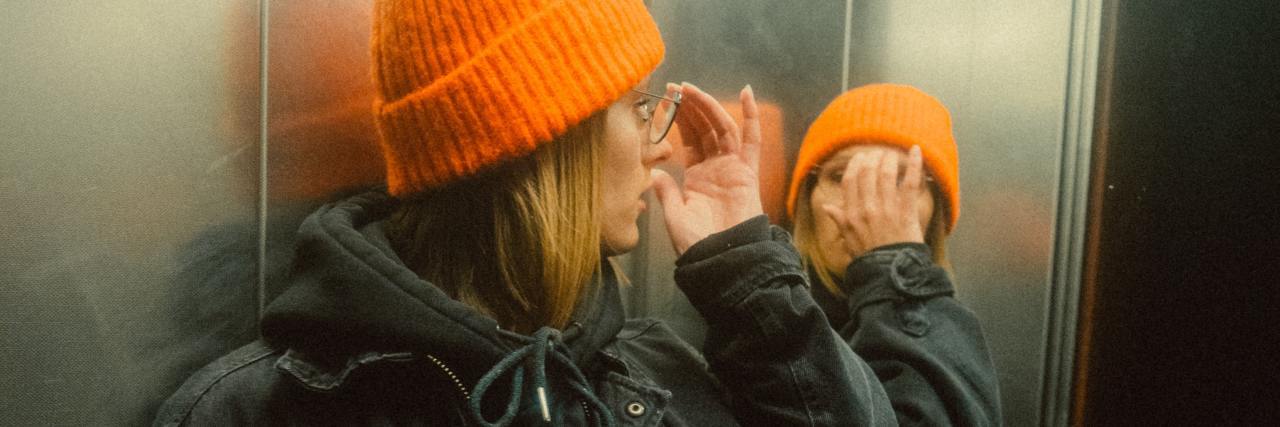Why I Developed an Eating Disorder in Depression and Anxiety Recovery
Editor's Note
If you live with an eating disorder, the following post could be potentially triggering. You can contact the Crisis Text Line by texting “NEDA” to 741741.
If you want to have a conversation with people who “get it,” join The Mighty’s Chat Space group.
I always knew recovery would be hard. It had taken me months to muster up the courage to ask my parents for help and start therapy in order to even begin my recovery from depression and anxiety.
When I started my recovery, I was an anxious wreck. For the past year, I had been hiding the extreme emotional turbulence I was going through, and I was nervous to talk to anyone about it, let alone a therapist.
“You get out what you put in” was what my mom said to me, as we were waiting in the car before my first therapy appointment. This was her way of saying if I wanted to get better, I would have to put in a significant amount of work. I couldn’t just show up to therapy — I’d have to fully participate in becoming healthy both inside and outside of the office.
Like I thought, recovery was difficult. It took me a while to soak in what my mom had said to me and unlearn the lies my mental disorders had been telling me for years. Even when I felt like I was beginning to heal, recovery wasn’t linear; I had good days, and I had bad days. It was just a matter of continuing to take care of myself regardless of what my mood was.
A year after my first therapy appointment, I no longer recognized the broken girl I once was. Although I still had a lot to learn, I understood myself better, I was more confident and I was hopeful about my future again.
But there was a new, unforeseen difficulty I’d have to overcome, as confidence wasn’t the only thing I had gained during recovery — I had also gained back the weight I’d lost when I had depression and anxiety.
I had lost weight before I started seeing my first therapist, when I was struggling with depression and anxiety during my freshman year of college. Afraid to talk to my parents, I was anxious all of the time, which caused me to lose my appetite. I still ate, but I skipped meals regularly and ate smaller portions, because I was rarely hungry.
“There’s nothing wrong, because it’s not like I’m purposely eating less,” I thought to myself. “I’m just listening to my body. I’m not hungry, so why eat?”
By the end of my freshman year, I’d lost a significant amount of weight — not enough to fit society’s stereotypical image of a girl with an eating disorder, but enough to spark a few comments from my family. I didn’t think much of it, though. I thought I looked “normal,” and I had become used to what my “new” body looked like.
However, when I gained back the weight I’d lost, I suddenly became painfully aware of everything about my body. Every time I was in front of a mirror, I’d turn to the side to suck in my stomach, pull on my arms and thighs, and wish I looked the way I did when I was too anxious to eat. I thought about food and body image all of the time, and I soon developed an eating disorder.
The thing was, although gaining weight was a sign therapy was working — I wasn’t as anxious anymore and could feel hunger again — I wasn’t expecting to feel bad about my body during recovery. From what I learned through society, gaining weight was a bad thing, a thing you didn’t want to happen, and when it did happen, I hated myself for it.
It’s been almost two years since I’ve gained back the weight I lost from depression and anxiety, and a lot has changed for the better since then. I go to therapy once a week, exercise and journal, all of which have helped me with my depression, anxiety and eating disorder.
I’m not perfect, of course. I continue to have periods of depression and anxiety, and I’d be lying if I said I don’t do and think things because of my eating disorder.
But I have made a lot of progress that’s made my life happier and healthier. My eating disorder isn’t something I struggle with, but rather something I live with, and I’m beginning to understand that bodies are meant to change. Everything — our beliefs, our friends, our passions, even our bodies — are allowed to change, and that’s OK if they do.
What I tell myself every day is in the long run, when my hair fades to white and my skin is wrinkly beyond belief, I won’t remember what I looked like, how much I weighed or what I ate on a certain day. But what I will remember is who I spent my life with, what I did and how I felt, and I want to live a life that’s full and rich.
Photo by Mike Palmowski on Unsplash

